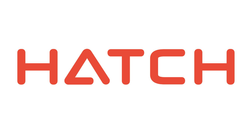Risk outweighing the reward in the mining and metals sector?
| Risk outweighing the reward in the mining and metals sector? | 16.99 KB | Download | |
| Hatch Goba Director of Mining and Metals for Africa Lister Sinclair | 3.22 MB | Download | |
| Resource nationalism remains the number one ranking risk | 1012.33 KB | Download | |
| The risks facing the mining and metals sector in Africa have become extreme and complex | 810.44 KB | Download |
Sinclair points out that this could not be truer than in South Africa. “For the first time, Hatch Goba is busy with more work outside of South Africa’s borders than inside. The amount of work available has decreased significantly with many of the mining majors moving their attention to projects north of our borders,” explains Sinclair.
In South Africa in particular, Sinclair points out that projects have been deferred and delayed, and in some instances investment withdrawn altogether, because of the degraded risk/reward equation. While the demand outlook remains strong, commodity price peaks have passed and there is a much greater need for mining and metals companies to remain nimble and sure-footed in how they manage these fast changing risks in order to balance the risk/reward equations.
“The one fundamental change that has been established within Hatch Goba is that our future workload for the foreseeable future will come from outside of South Africa,” explains Sinclair.
A report recently released by consulting firm Ernst & Young titled ‘Business risks facing mining and metals companies 2012/2013’ highlights that the uncertainty and destruction of value caused by sudden changes in policy by the governments of resource rich nations cannot be understood. Mining and metals companies looking to preserve value are actively negotiating value trade-offs with less politically sensitive policies than resource nationalism.
The report points out that resource nationalism remains the number one ranking risk as governments seek to transfer even more value from the mining and metals sector. Many governments around the world have gone beyond taxation in seeking a greater take from the sector with a wave of requirements introduced such as mandated beneficiation, export levies and limits on foreign ownership. Sinclair says that as the risk continues to grow in significance, he doesn’t anticipate a slowing in this trend, unless drastic governmental decisions are taken in the short-term.
Exacerbating the situation in South Africa is labour unrest, the ongoing skills shortage and infrastructure access. The report points out that both of these risks are more acute than they were 12 months ago, highlighting the supply capacity constraints that have hampered the sector for some time. Significant risks associated with skills shortage include impact to production, project delays and increasing labour costs. Sinclair says that identifying, attracting and retaining critical operational and construction skills should remain a top priority for the mining and metals sector.
The report points out that the acute skills shortage seen in Australia and Canada has spread to more places during the past year, with projects in Indonesia, Mongolia, Brazil, Chile, Peru and Mozambique plagued by this challenge. Strong commodity prices and confidence in the long-term sector fundamentally have reinvigorated investment in mining and metals to quickly develop new projects or ramp up production from existing ones. The increased investment is in turn driving demand for skilled workers around the world and drawing on the same global pool of talent. The risk is that this could slow growth and increase costs.
Looking back to 2012 and to the remainder of 2013, Sinclair says that despite the overall softening of commodity prices near the end of the year, Hatch Goba still had a good year and is currently working on four execution mining and metals projects in Africa. He adds that the company is closely following developments in commodities such as gold and iron ore in Sierra Leone, Liberia and Mauritania, as well as copper and zinc deposits in the Democratic Republic of Congo.
Sinclair concludes by saying that he is cautiously optimistic about the pipeline of work for the remainder of 2013. Hatch globally is starting to see an uptick in work, especially in areas such as Australia and North America. With many clients starting to revisit capital projects that have previously been put on the back burner; we hope that Africa will follow suit which will materialise in more work,” concludes Sinclair.
Ends.
Notes to the Editor
There are numerous photographs specific to this press release. Please visit http://media.ngage.co.za and click on the Hatch Goba link.
About HatchGoba
Hatch Goba supplies process and business consulting, information technology, engineering, and project and construction management and operational services to the mining, metallurgical, energy and infrastructure industries.
Hatch Goba Contact
Michelle Reinhard
Hatch Goba Marketing and Communications Coordinator
Phone: 011 239 5300
Email: MReinhard [at] hatch [dot] co [dot] za
Web: www.hatch.co.za
Media Contact
Kelly Farthing
NGAGE Public Relations
Phone: (011) 867-7763
Fax: 086 512 3352
Cell: 079 367 7889
Email: Kelly [at] ngage [dot] co [dot] za
Web: www.ngage.co.za
Browse the Ngage Media Zone for more client press releases and photographs at http://media.ngage.co.za

